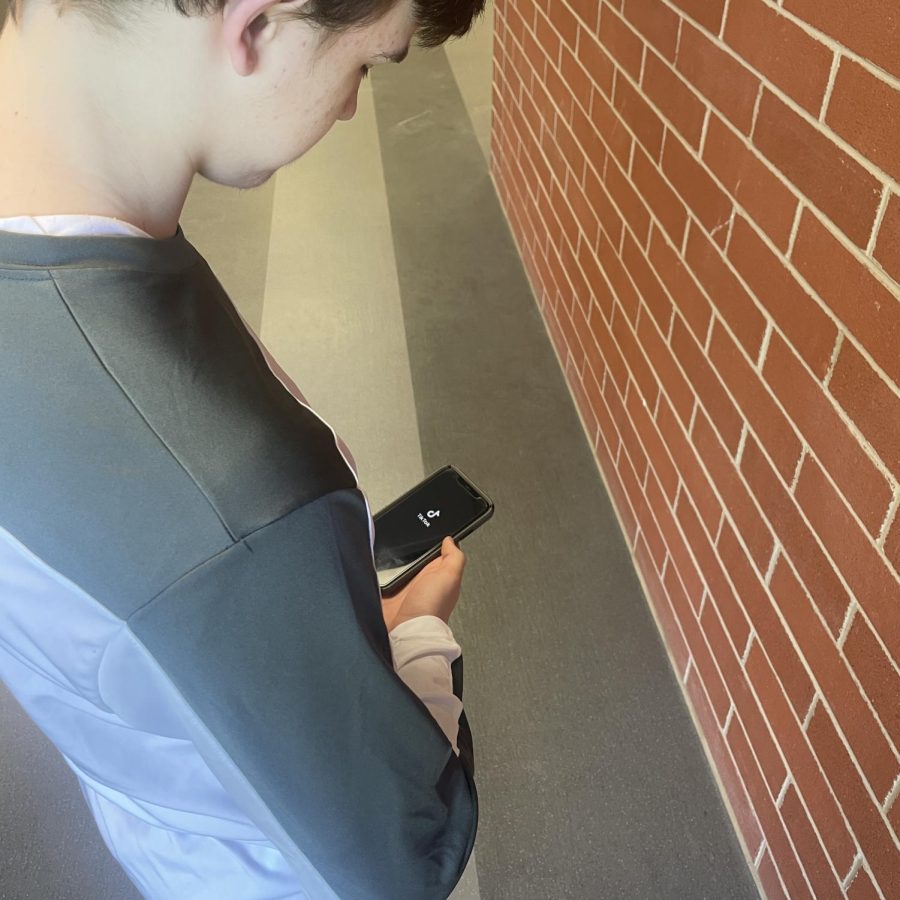TikTok data collection initiates new RESTRICT Act
TikTok faces threats of banishment from the United States after the discovery of data being collected from international users.
Scrolling away…Opening TikTok, sophomore Liam Aldredge uses his phone to search for various videos on TikTok.
By voicing their opinions on the recent international data collection, Souderton students who love and hate TikTok attack both the app and the bill set to ban it.
Since its release in 2016, TikTok has grown to be one of the most successful social media platforms in the world, as well as one of the most controversial.
TikTok has approximately one billion active users, meaning more than one billion users interact with the app every single day.
Throughout someone’s experience on TikTok, information such as IP Addresses, users page, anything clicked, typed or searched for is collected and shared with the Chinese government.
Sophomore Liam Aldredge believes this is an invasion of privacy.
“It’s not very comforting to know that my information is being shared but it is also something out of our control,” Aldredge said.
Data being collected from citizens and given to a communist government is something that many government officials are not okay with.
The U.S., along with Britain, Canada, New Zealand and many EU countries have officially banned TikTok on all government and military-issued devices. India banned the app entirely.
According to sophomore Jacob White, TikTok is horrible for the youth of America because not only is it damaging their attention span but also creating a generation of “clout chasers.”
“I think banning TikTok in the U.S. is better for the people and their safety,” White said.
The RESTRICT Act (Restricting the Emergence of Security Threats that Risk Information and Communications) was constructed and is currently making its way through Congress.
This bill grants the Secretary of Commerce the ability to regulate technology produced by China, Cuba, Iran, North Korea, Russia and Venezuela due to their adversarial relationships with the U.S.
This bill would mean the end of TikTok in the United States.
Aldredge said banning TikTok would be taking away U.S. citizens freedom of speech and a form of government censorship; “100% violating the first amendment.”
In July 2020, President Donald Trump attempted to ban TikTok and was unsuccessful.
Now, nearly three years later, the Biden administration is attempting the same thing, making the RESTRICT Act a bipartisan bill with widespread support from both sides of the House.
With both Democrats and Republicans behind the bill, the chances of it passing increase.
The Chinese communist party has not declared their intentions with the collected data, so as of now the information has not harmed or helped anyone.
Freshman Krish Patel acknowledges that his data is being collected, but believes that the data collected is harmless. It’s “just there,” according to Aldredge.
“I just don’t really care,” Patel said. “What are they going to do about it?”







